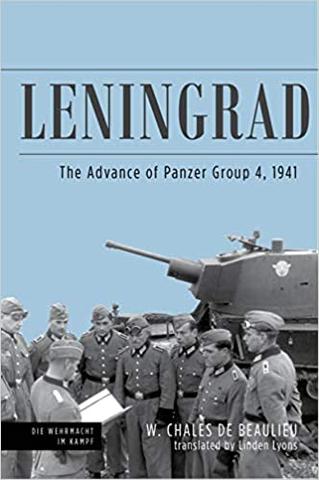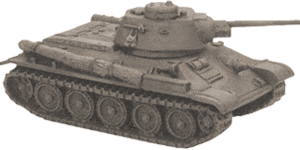Leningrad

Here we are again. I had previously sworn off reviewing World War II books written by former German officers. Darn it but don't I have another good one for my readers. This time we get to hear the thoughts of Panzer Group 4's former Chief of Staff - Chales De Beaulieu. More to the point, we get a detailed look at his opinion as to why his panzer group failed to meet its objectives during Operation Barbarossa. In particular, he ably documents here his take on the work of himself, the commander officer of Panzer Group 4 (Erich Hoepner),and their staff toward reaching Army Group North's ostensible operational objective during the June 1941 German invasion of the Soviet Union: that being the city of Leningrad.
This book's strength is in its analysis. It's a great read for those seeking an understanding as to how and why a campaign can go off the rails and are sick of hearing about little more than the numbers game. This book helps put to bed those quantiative based arguments as determinant in military success. It refocuses our attention on the decision-making that typically carries the day in a battle against peer competitors. Indeed, De Beaulieu's book puts forth a compelling argument that the greatest problems his panzer group faced were not the weather, poor infrastructure, Russian hordes, or Hitler. Instead, and in De Beaulieu's telling, Panzer Group 4's biggest struggle came from the battle against it's own leadership at the head of the German army. More specifically this book goes after Franz Halder with a vengeance (Chief of Staff of the German Army up to his dismissal in September 1942).
It is hard to read this book and come away thinking anything other than that Halder's obsession with Army Group Center's area of operations so distracted him as to miss the huge opportunity Panzer Group 4 had created when its XXXXI Panzer Corps led a 750 kilometer drive conducted in only 23 days. This push into Russia took XXXXI Panzer Corps all the way to the Luga River, the last natural defensive barrier before Leningrad. There it would sit for weeks on end as Panzer Group 4's other panzer corps was ordered on a jaunt to the east and into the depths of a swampy and unforgiving Russian wildnerness that did nothing to further Army Group North's operational objective of taking Leningrad. And that argument is convincingly made here.
Note also that Linden Lyons again does an excellent job in his translation of this work (originally penned in German back in 1960). This is a book that anyone with an interest in understanding what elements bring success in operational warfare during the Second World War would be well advised to take the time to read. Moreover, this short but engaging book offering a very contrarian view to that typically put forward as to why Army Group North failed on the road to Leningrad.



Post new comment